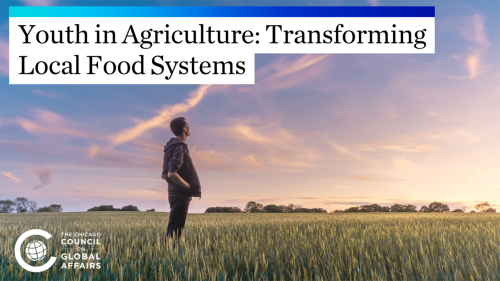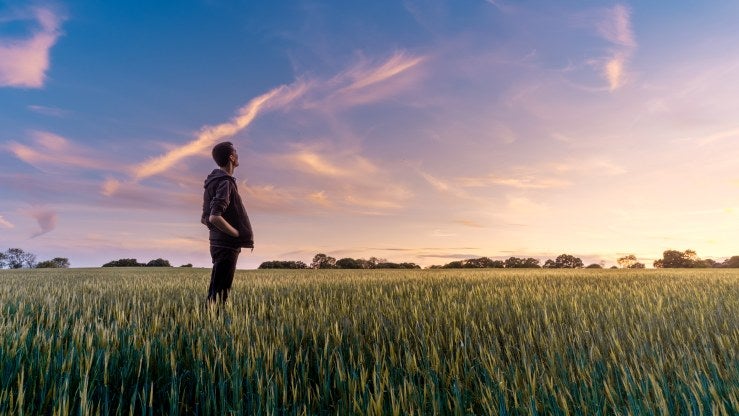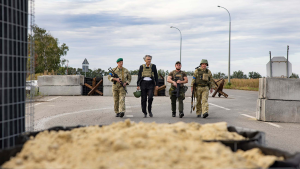Indigenous Land, Tense Talks, and Going Green
Check out our roundup of the week's top news and research in food, agriculture, and global development.

Top Story
Brazil Recognizes Indigenous Lands
Brazilian President Luiz Inácio Lula da Silva officially recognized nearly 800 square miles of Indigenous lands in the Amazon to protect the rainforest from exploitation by mining and commercial farming and logging. The land remains under the federal government’s jurisdiction, but the designation grants Indigenous peoples the right to use it in their traditional manner. The newly recognized territories are larger than Los Angeles and New York City combined, and are home to more than 4,000 Indigenous people.
To learn more about Indigenous communities and the issues that affect them most, check out our recent blog series “Stewardship, Sovereignty, and Solutions.”
Council Insights
Engaging the Next Generation
Agriculture is an aging industry, with the average age of US farmers increasing to 60 years old in 2022, which leads us to ask: why aren't young people getting involved? This week on our first episode of the limited podcast series Youth in Agriculture: Transforming Local Food Systems, Avani Rai and Sarah Evanega dive into youth engagement in agriculture, discussing the different avenues youth can take to get involved and the pressing issues they are confronting.

Food & Agriculture
USAID Pulls Out
The United States Agency for International Development (USAID) suspended food aid to Ethiopia's Tigray region due to concerns about the aid being sold on illicit markets. The decision comes amid reports of widespread hunger and malnutrition in the conflict-affected region, where the United Nations warns of a potential famine that could affect 1.5 million people. Administrator Samantha Power said USAID "stands ready" to restart the program once it has confidence that assistance will reach the intended vulnerable populations.
WFP Back In
The World Food Program (WFP) resumed its operations in Sudan after halting them following the deaths of three of its workers. Now using security measures to protect its staff, the WFP announced that it resumed operations in four states: Gedaref, Gezira, Kassala, and White Nile. WFP is feeding refugees and internally displaced people in the area where over 15 million people were already food insecure before the conflict.
Dutch Carbon Scheme
The European Commission approved the Dutch government's plan to buy out hundreds of farms near nature reserves to reduce nitrogen emissions. The Dutch government set aside $1.6 billion to compensate farmers who shut down their enterprises in a bid to quell protests from Dutch farmers over the government's goal of halving nitrogen emissions by 2030. The Netherlands, one of the world's largest exporters of agricultural products, aims to reduce nitrogen levels caused by decades of intensive farming.
Deeper Dive
What Is the Global State of Food Insecurity?
The 2023 Global Report on Food Crises found that in 2022, almost 258 million people across 58 countries faced acute food insecurity, up 33 percent from the previous year. This marks a seven-year high and the fourth consecutive year with rising numbers of people experiencing severe food insecurity. The report blames economic shocks, weather extremes, and conflict and insecurity for the dramatic rise in hunger numbers, further exacerbated by the war in Ukraine and the lingering effects of COVID-19.
Resilience
Fishmeal Goes Green
Innovafeed SAS, a French company, has built the world's largest insect farm in Nesle, France, capable of producing 15,000 tons of insect protein per year. Innovafeed uses black soldier flies to produce larvae that are then used to feed salmon and shrimp, thereby reducing the carbon footprint of traditional fishmeal. Currently, about 30 percent of all fish caught is transformed into conventional fishmeal.
DC Report
Loan Relief
The US Department of Agriculture (USDA) announced an additional $130 million in assistance to financially distressed borrowers, bringing the total farm loan relief for producers to approximately $1.1 billion since last fall. The aid was provided in response to the $3.1 billion that was earmarked in the Inflation Reduction Act for “farm loan immediate relief for borrowers with at-risk agricultural operations.”
Big Actors
Tense Talks
Talks continue between the Kremlin and the West on extending the Black Sea grain deal, but may not be for much longer. Russia has repeatedly stated that it is prepared to walk away from the deal on May 18, its expiration date, if its demands for easing restrictions on agricultural exports are not met. The West says sanctions do not directly target Russia’s agricultural sector, but Russia claims its exports are struggling nonetheless.
Big Ideas
Floating Gardens
Floating gardens, a traditional form of hydroponics that dates back at least 400 years, are now being recognized as a climate-resilient solution to increasing floods. Built on rectangular rafts made from the weed water hyacinth and topped with a layer of manure, floating gardens are a low-cost option for rural farmers and have proved especially viable for those in Bangladesh, a country heavily affected by rising sea levels and severe monsoons.
Ask an Expert
What can college students do to get engaged in the food and agriculture sectors?
“It’s easy to get sequestered away in the university world and forget that you actually are living in the context of a community, and that you, as a college student, can also engage in that community. So, I would say keep doing what you're doing, look around, find the organizations that interest you—if they're not there, build them yourself, find mentors, find partners. The resources are there if you look. You can do anything.”
— Sarah Evanega in episode one of Youth in Agriculture: Transforming Local Food Systems


Have a question about food and agriculture? Ask one of our experts at the Center on Global Food and Agriculture to get an answer in next week's Global Food for Thought!
Council Events
Did you miss one of our previous livestreams? Don't worry! They are all available on our website to watch at any time.
Other Upcoming Events
AIM for Climate Summit
Date: May 8 – 10
Sustainable EweMass Panel with Danielle Peláez
Date: May 12
Time: 4:00 – 6:00 p.m.
2023 Food Waste Solutions Summit
Date: May 16 – 18
Farm Subsidies and International Trade Rules
Date: May 25
Time: 9:30 – 11:00 a.m. ET
IFAD Innovation Day 2023
Date: June 28
Time: 7:00 a.m. GMT
Land Acknowledgement Statement
The Center on Global Food and Agriculture recognizes it occupies the ancestral land of the Kiikaapoi, Peoria, Kaskaskia, Bodwéwadmi, and Myaamia people. Indigenous communities around the world disproportionately experience the pressures of climate change, global conflicts, and the COVID-19 pandemic, while simultaneously stewarding 80 percent of the world’s biodiversity. These Indigenous tribes and nations are the original owners of this land and continue to be systemically erased by policies and practices that ignore their histories. To learn more about Indigenous foodways and practices, check out our 2022 blog series "Stewardship, Sovereignty, and Solutions."
Related Content
- Embracing Dandelions as Food and Medicine
- Going Beyond Regenerative Agriculture on Tribal Lands
- Expanding "638" to Enhance Native American Food Sovereignty
- Flavors and Culture: Food Systems Through Indigenous Women's Eyes
- A Thanksgiving Legacy: Fighting for Indigenous Food Sovereignty
- Native Food Sovereignty: Strengthening Connection to Culture
- Reconnecting to Indigenous Food Sovereignty Values and Practices
- Embracing Interconnectedness: How Indigenous Foodways Can Save Us




